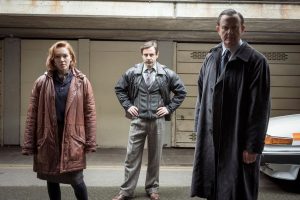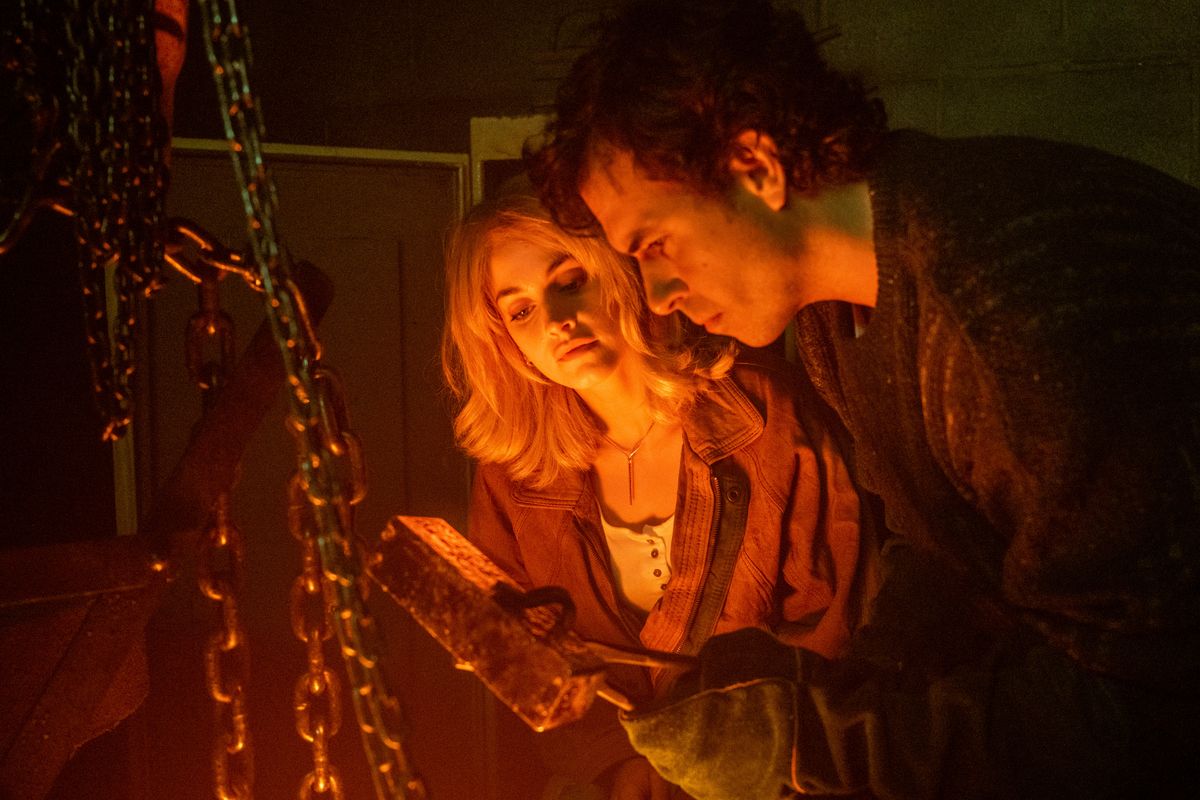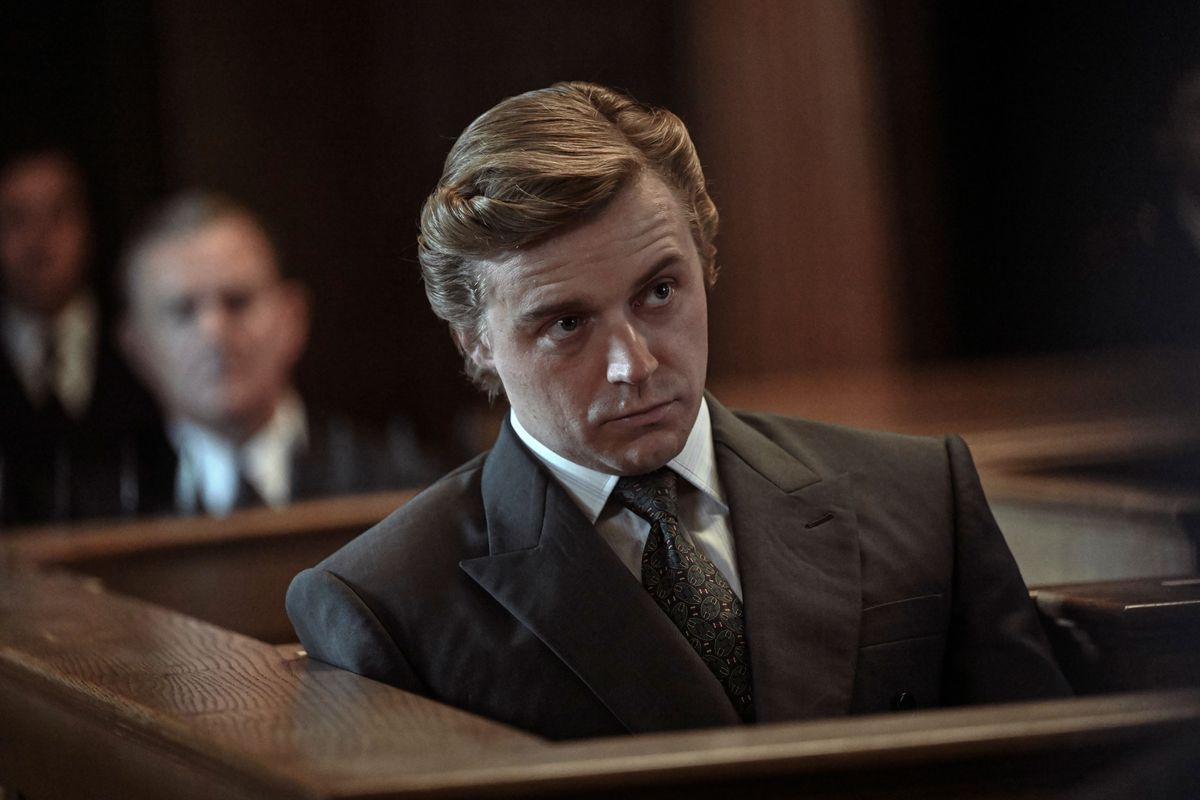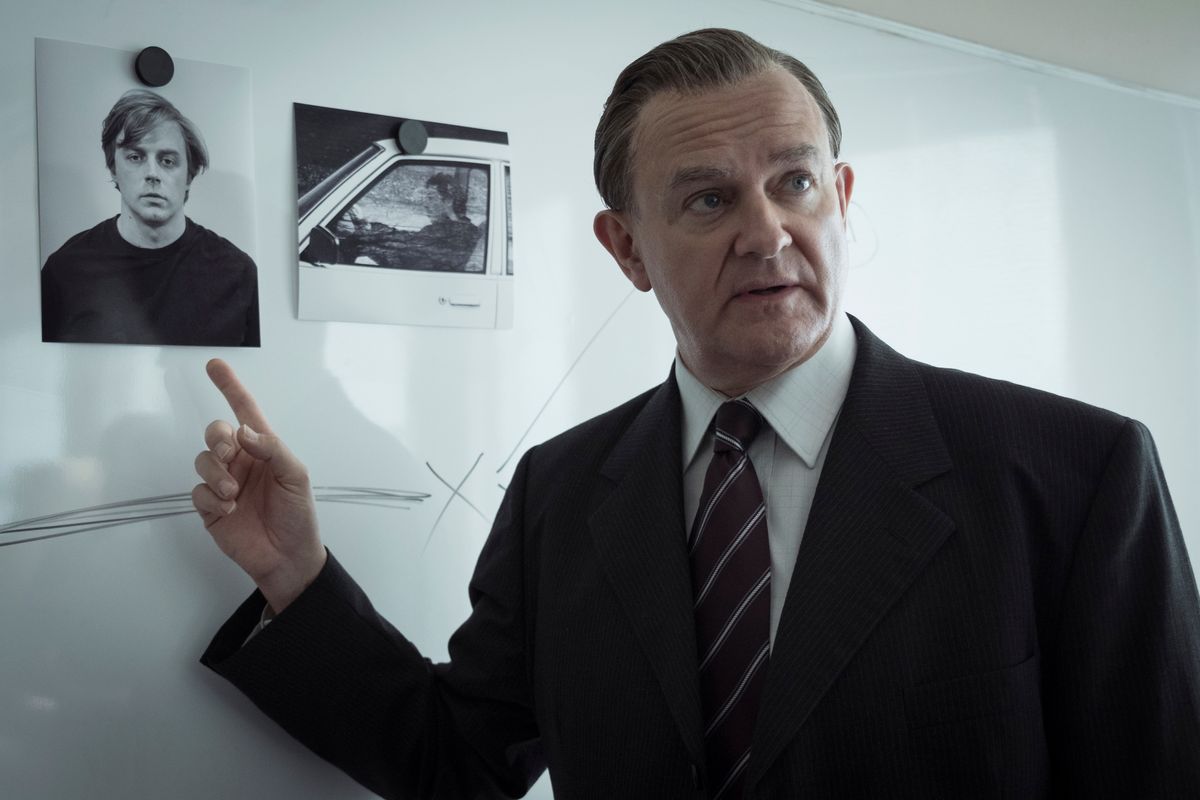NEW YORK (AP) — In 1983, six thieves muscled their way into a warehouse near Heathrow Airport, expecting to find a large sum of foreign currency. They got much more than they bargained for — 26 million pounds worth of gold bars.
What happened in the days and years next is the subject of PBS’ “Masterpiece” enthralling series “The Gold,” which traces the ripple effects of Britain’s biggest robbery, going from a local search to infiltrating an international money laundering cartel. It starts airing Sunday.
“From the minute the show starts, the pressure’s on,” says showrunner Neil Forsyth. “There’s a clock ticking, there’s a net tightening and all these things. So it’s lovely to write characters under that continual pressure.”
The so-called Brinks-Mat heist rocked Britain, leading to changes in banking laws, policing and shining a light on official corruption. Much of the gold was never located. It was melted down and sold back into the financial system, with the proceeds laundered into real estate.
“It’s literally in the bricks and mortar and the architecture that surrounds people everywhere,” says Emun Elliott, who plays one of the detectives. “There might be a piece of that stolen gold in your wedding ring. It is everywhere.”
‘Truly gripping’
To tell the sprawling story of “The Gold,” Forsyth streamlined timelines, combined real-life figures and adjusted events to fit the drama. Viewers are told the series was “inspired by real events.”
“It’s not a strict factual drama,” he says. “I don’t find that a very attractive route to go down creatively because I like having the space to create and that’s extremely important if you’re going to create something that’s truly entertaining, truly gripping.”
One real person who is portrayed in the series is Brian Boyce, the principled and determined lead investigator, played by “Downton Abbey” star Hugh Bonneville.
Boyce “was known to be a safe pair of hands,” says Bonneville, who met the retired officer to prepare for the role. Boyce knew some officers in the department were corrupt and picked a lean, insular team to track down the gold and money.
“He absolutely was adamant that not on his watch would police corruption thrive,” Bonneville says. “He’s a real man of integrity and I think that comes through. You’ve got him against all odds trying to steer a level course and get this job done.”
Forsyth says the series’ first episode attracted some 10 million viewers in the U.K. — or 1 in 5 of the adult population. He says he was in a restaurant with his wife once when the nearby table spent the whole meal discussing it, which was “somewhat unnerving.”
Thatcher’s Britain
Forsyth was only 5 and living in Scotland at the time of what he calls the “iconic heist.” Despite its impact on British society, no one had pieced it all together in a dramatization or an all-encompassing documentary until now.
It takes two seasons to unspool fully and has a soundtrack that features songs of the era by the likes of Echo & The Bunnymen, New Order, The Smiths and The Stranglers.
Forsyth frames the robbery against large social forces that were clashing in then-Prime Minister Margaret Thatcher’s Britain — the rise of a new money class hoping to buy their way to the top versus the upper classes and aristocracy, determined to stop them.
“This country doesn’t change,” says one old money character. “There is nothing the system likes more than those who take it on. That’s when it gets to show its strength.”
Though Elliott plays a detective who has vowed to track down the missing gold, he knows the viewer may be switching allegiances while watching.
“It’s like you kind of want them to get away with it and then the next episode maybe you want them to get caught,” he says. “That back and forth is just a thrilling kind of place to sit.”
“The Gold” is all about greed, of course. It shows how legitimate people got sucked into money laundering, how banks were complicit and how 1980s hubris kept it going.
“A big part of ‘The Gold’ story is people being out of their depth — people being overly ambitious and finding themselves out of the depth,” Forsyth says.
That includes the robbers themselves, who suddenly had to find a way to move and cash in on 6,800 gold bars. They were stick-up guys now way out of their depths.
“They just didn’t know what to do with the proceeds. They didn’t fit into this new world of money laundering and deregulation and the opportunities that it brought for criminality,” says Forsyth.
“It was the greatest victory for traditional crime, but it was also kind of its funeral really, and it got replaced by something far murkier.”
By MARK KENNEDY
AP Entertainment Writer





